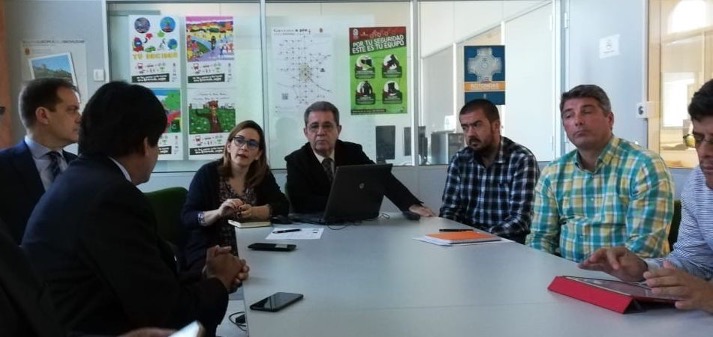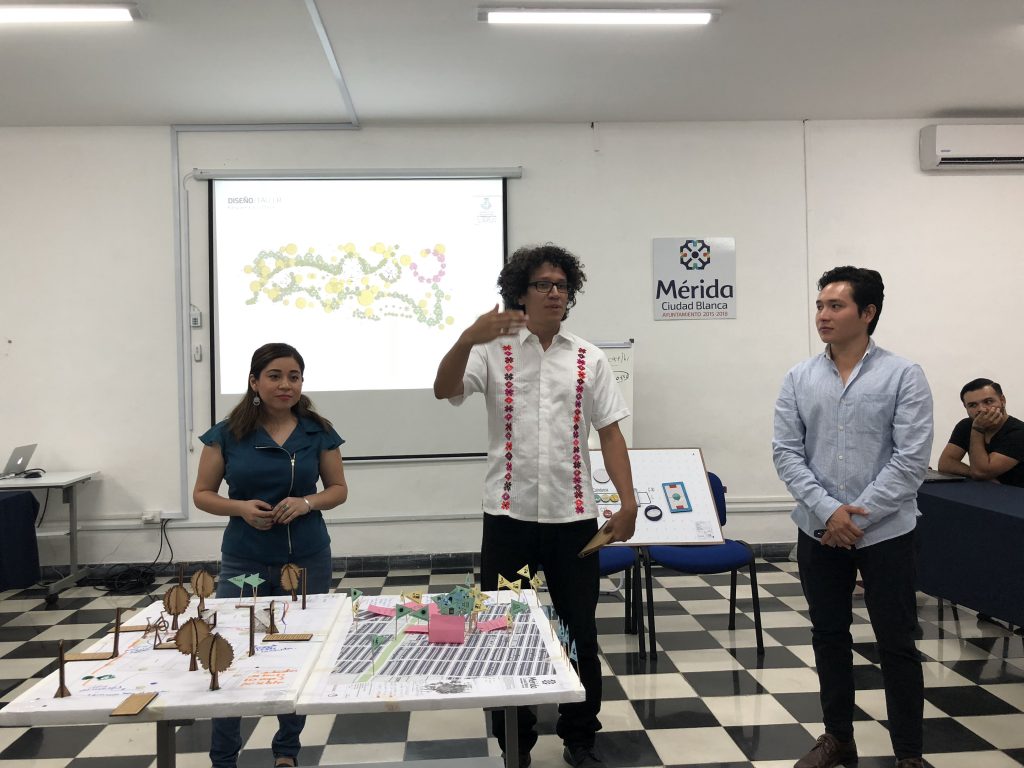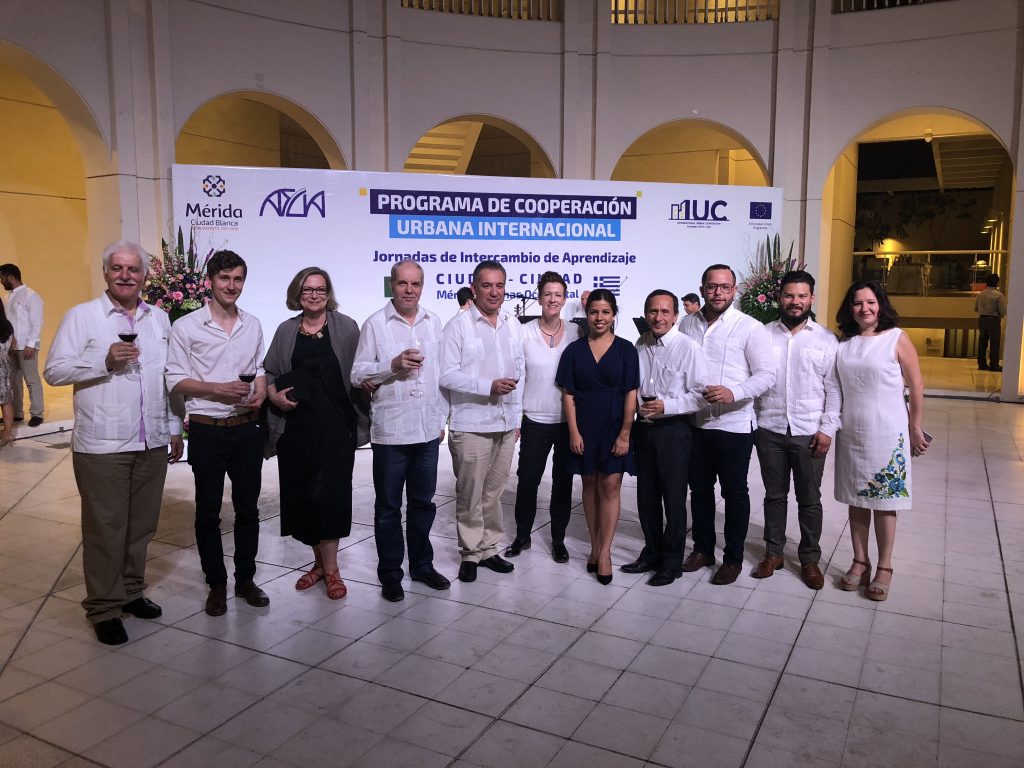Successful collaboration with Latin American cities
IURC Latin America offers the opportunity to work in countries with significant populations, with the six largest emerging economies of Latin America, with great investment opportunities in renewable energy, innovation, urban planning, housing, and infrastructure, including mobility and transport.
The selected economies have important trade and investment agreements with the European Union, as well as important regional agreements. For example, Chile, Peru, Colombia, and Mexico are part of the Pacific Alliance (Alianza del Pacífico), while Argentina and Brazil are members of Mercosur. The region is also keen on sharing good practices in urban development. Some examples are “Social urbanism” in Colombia, and “Participatory Planning” in Brazil.
The last few years of International Urban Cooperation, the predecessor of the upcoming International Urban and Regional Cooperation programme, saw a lot of cities collaborating across the Atlantic and developing really exciting steps forward together. Here are just three examples of cities that reached practical achievements, and we’ve included a bonus fourth story at the end about a startling coincidence during one of our exchanges.
Mérida, Mexico – West Athens, Greece
Merida and West Athens mainly focused on the exchange of best practices for sustainable urban mobility planning and public participation. For two years, delegates from both cities participated in learning exchanges, thematic events and technical visits to other IUC cities in Europe and North America. In developing a Sustainable Urban Mobility Plan, Mérida created a working group composed of local stakeholders related to the urban mobility sector, from the public and private sector, civil society and academia.
Mérida involved a cross-sectoral working group in a collaborative process to develop the integral urban mobility plan, which was finalised in November 2019. Mérida launched the Sustainable Urban Mobility Plan to local authorities, key stakeholders and citizens. Through the IUC program, West Athens created an inter-municipal group for the coordination of their own urban mobility plan and a number of workshops with other municipalities across the Athens metropolitan area, including politicians and public servants with a focus on capacity-building for public participation in the delivery of the sustainable mobility plan.

Arequipa, Peru – Granada, Spain
These two cities focused their cooperation on the management and promotion of historical heritage sites, social housing and sustainable mobility. During the study visits, Arequipa found it of the utmost importance to learn from the experience of another World Heritage City, like Granada, and how it has managed to revitalise and make more sustainable housing, urban infrastructures and mobility. Arequipa was also interested in the identification and design of projects in this field to be implemented soon with the already available funding for the historic city centre, including a loan from the Inter-American Development Bank for renovation of water and sanitation networks.
For Granada, the main objective in this cooperationwas the exchange of experiences regarding the management model to improve the social housing program in heritage contexts. Four key projects were defined in Arequipa, in coherence with the city’s development plan. (i) Drainage plan and investment for the historic city centre; (ii) Renovation of water and sanitation networks in the historic city centre through non-invasive methods, and (iii) Mobility plan and development of public spaces for tourism. The collaboration with Granada enriched their preparation. The activities undertaken in Granada were also related to urban regeneration and social housing in the historic city centre, and sustainable water management.
Sao Paulo, Brazil – Milan, Italy
The thematic cooperation for Sao Paulo and Milan focused on sustainable urban renewal strategies, enhancement of artistic and historical heritage, and public spaces.On the basis of the considerable urban renewal that Milan has been undergoing for the last years, Sao Paulo was very interested in exchanging knowledge and experiences with the city-peer in relation to the redevelopment of brownfield sites and public spaces, with the aim of upgrading urban spaces and promoting citizens’ participation.
Milan was keen to know in detail good practices and concrete examples of interventions of urban renewal carried out in Sao Paulo, a city which in the last 20 years has developed a large number of major urban projects, mainly on abandoned and underused industrial areas in the central part of the metropolitan region. Both cities identified as a complementary topic for mutual learning, the exchange on cultural heritage preservation within the context of urban regeneration processes.
Sao Paulo faces challenges in incorporating the presence of buildings, spaces and landscapes of historical and cultural value in the municipal urban planning and in the requalification construction, on the part of both the public authority and the private initiative. In this sense, the exchange of experiences with the city of Milan brought inputs for the technical processes that are already underway in Sao Paulo, such as the preparation of a proposal for the readjustment of regulations.

Cali & Medellin, Colombia – Belfast, UK
Belfast is the capital of Northern Ireland and one of the youngest cities in the country. Santiago de Cali is the capital of the Valle del Cauca department and the most important city in southwestern Colombia and the Pacific coast. Medellín is the capital of Antioquia department. It is the second largest city in Colombia, and it is the leading city of a metropolitan area with its surrounding including nine other cities, being the second- largest urban agglomeration in the country. For Belfast, the mental health crisis in a post-conflict society is becoming ever more evident and there is now a greater need to address it.
The first visit to Cali and Medellín generated very deep reflection among the people from the Belfast mission. They especially appreciated the programmes on mental health, and the integration of all urban policies (e.g. employment, waste, social cohesion). In the complementary mission to Belfast, Cali and Medellín were very well impressed by the Belfast (EU) Community Planning partners within Belfast municipality and the restorative practices and approach to justice in a post-conflict societydeveloped in the Northern Irish city. The delegation from the cities of Cali and Medellin were surprised and delighted to find a street mural by a Colombian artist during their study visit to Belfast showing what they had already come to realise: That the cities had deep cultural and social commonalities and synergies.

